NYFF 2011: Team ScreenAnarchy Wraps Up: Part 2
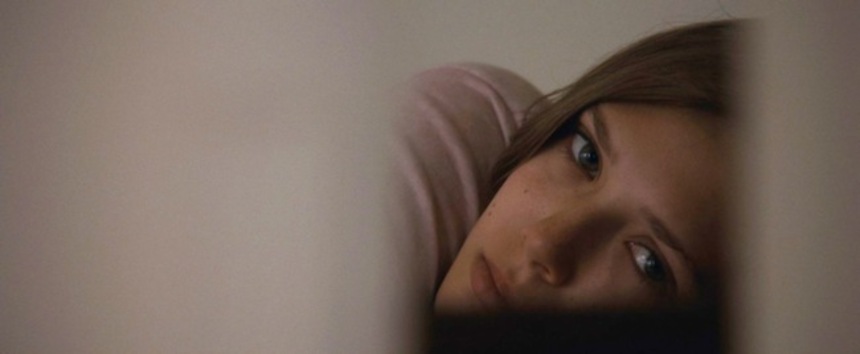
Aaron Krasnov: One emergent festival theme I've started thinking about since we started this correspondence is the disturbed female: through Miss Bala, Melancholia, A Dangerous Method, Shame (though not the focus), and Martha Marcy May Marlene. Elizabeth Olsen and Martha Marcy May Marlene epitomized this for me (note: I have not seen A Dangerous Method yet), a fragmented narrative aiming to disorient and frighten, evoking empathy through reconstruction. Melancholia, though gorgeous and well acted feels insular compared to Martha May, which reaches into the numbed confusion and examines what it means to exist in this world, with family, with society, sexually, behaviorally and ideologically. Blurring dreams, reality, past and present, the confusion is allowed to evolve. Where as the symptoms in the festival's other films tended to remain more one-note.
Peter Gutierrez: That's great to bring up -- because now I can be yang to your yin, or vice versa, I'm not sure. I was sick and couldn't attend Martha Marcy May Marlene, so now you've made me look forward to it more than ever. On the other hand, I saw and loved A Dangerous Method and a lot of what you say applies to it as well. That is, much of its greatness lies in its anti-one-noteness, if you will. (I also think you've hit on the hinge issue with The Loneliest Planet -- audiences will tend to like it if they appreciate the setting-in aspect you describe.)
 I won't repeat the points from my review, but the richness of subtext and point-of-view in
Cronenberg's film puts most other recent dramas to shame, not just those at NYFF. And speaking of Shame (how
do you like that segue?), or maybe I should say "speaking of
psychological conditions," it troubled me at the press conference when
director Steve McQueen seemed to be emphasizing the "affliction" at the
center of his film. That's because it confirmed the feeling I got in the
final third of Shame, which is that, sadly, it was nothing more than a
very arty disease-of-the-week movie. I don't mean to make light of sex
addiction or suggest that a memorable or hard-hitting film can't be made
about the subject. But Shame, despite its occasional flashes of
brilliant direction, or art direction, my favorite performance from
Carey Mulligan thus far and another strong one from Michael Fassbender,
is not that film. Virtually everything in its wind-it-up-and-watch-it-spiral-down approach felt like it had a thousand
antecedents, from Hubert Selby, Jr., to Brett Easton Ellis, to something
even as ancient as Midnight Cowboy. So while 4:44 Last Day on Earth was easily the NYFF film I liked the least, it was nowhere near as disappointing as Shame, perhaps because Hunger struck me as particularly original in so many ways.
I won't repeat the points from my review, but the richness of subtext and point-of-view in
Cronenberg's film puts most other recent dramas to shame, not just those at NYFF. And speaking of Shame (how
do you like that segue?), or maybe I should say "speaking of
psychological conditions," it troubled me at the press conference when
director Steve McQueen seemed to be emphasizing the "affliction" at the
center of his film. That's because it confirmed the feeling I got in the
final third of Shame, which is that, sadly, it was nothing more than a
very arty disease-of-the-week movie. I don't mean to make light of sex
addiction or suggest that a memorable or hard-hitting film can't be made
about the subject. But Shame, despite its occasional flashes of
brilliant direction, or art direction, my favorite performance from
Carey Mulligan thus far and another strong one from Michael Fassbender,
is not that film. Virtually everything in its wind-it-up-and-watch-it-spiral-down approach felt like it had a thousand
antecedents, from Hubert Selby, Jr., to Brett Easton Ellis, to something
even as ancient as Midnight Cowboy. So while 4:44 Last Day on Earth was easily the NYFF film I liked the least, it was nowhere near as disappointing as Shame, perhaps because Hunger struck me as particularly original in so many ways.What about you, though? Anything you saw that really exceeded your expectations--or did the opposite?
AK: McQueen also mentioned during the press conference of Shame that shooting Hunger had exhausted him so much he didn't want to make another film. Eventually he fell back into the process, and Shame feels like the easier, younger cousin of Hunger. Not reaching for too much, deftly visualizing the elements at hand, shot in a place McQueen wanted to capture. I don't see this as a bad thing, and thankfully I had heard a lot of backlash before hand and went in without expectations. It is, as you put it, just another addiction film, and one that certainly doesn't do anything new, but captured through McQueen's lens it has a glossy, aggressively operatic quality to it that is deserving of more.
 Pina was the film for me that stood out. I knew the
genesis of the project, and its eventual turn-around after Pina
Bausch's death, and had heard some great chatter coming through the
waves. What I wasn't prepared for was the best use of stereoscopy in a
completely live-action film that I have seen, and one of the most
vivacious celebrations of an artist's work I have been privy to. The
spaces the film's dances live in are chosen to complement the dance and
the camera, deep welcoming spaces that let stereoscopy do its thing,
expanding the screen backwards on the z, while giving contours to the
images at the fore. Jubilant and expressive, choosing to tell the
artist's story through her work and the polar opposite of Patience
(After Sebald), this is aesthetic documentary at its least traditional.
Pina was the film for me that stood out. I knew the
genesis of the project, and its eventual turn-around after Pina
Bausch's death, and had heard some great chatter coming through the
waves. What I wasn't prepared for was the best use of stereoscopy in a
completely live-action film that I have seen, and one of the most
vivacious celebrations of an artist's work I have been privy to. The
spaces the film's dances live in are chosen to complement the dance and
the camera, deep welcoming spaces that let stereoscopy do its thing,
expanding the screen backwards on the z, while giving contours to the
images at the fore. Jubilant and expressive, choosing to tell the
artist's story through her work and the polar opposite of Patience
(After Sebald), this is aesthetic documentary at its least traditional.I keep hearing about the importance of A Separation,
which I did not have a chance to see. You did though, and are echoing
the masterpiece talk. What makes that film such a standout?
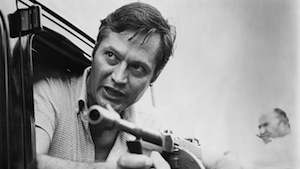 PG: Sorry I missed Pina -- and before I get to A Separation
I should mention a wonderful doc that also happens to be a celebration
of an artist's work, although in this case a very different kind of
artist. I'm talking about Corman's World,
which gained some strong reviews out of Sundance and which opens
theatrically on December 16th. Super smart, yet made with a fan's
enthusiasm and boasting some unexpectedly revealing scenes about other
filmmakers (I have more fondness for both Jack Nicholson and Ron Howard
after seeing it), this is really a film made with a ScreenAnarchy mentality in
mind. Everything from Bergman to cheesy scifi flicks of the '50s (and
cheesy Syfy flicks of today) is covered, and it's
all presented at a nice pace and great sense of proportion for the many
stages of Corman's career. Really, really not to be missed.
PG: Sorry I missed Pina -- and before I get to A Separation
I should mention a wonderful doc that also happens to be a celebration
of an artist's work, although in this case a very different kind of
artist. I'm talking about Corman's World,
which gained some strong reviews out of Sundance and which opens
theatrically on December 16th. Super smart, yet made with a fan's
enthusiasm and boasting some unexpectedly revealing scenes about other
filmmakers (I have more fondness for both Jack Nicholson and Ron Howard
after seeing it), this is really a film made with a ScreenAnarchy mentality in
mind. Everything from Bergman to cheesy scifi flicks of the '50s (and
cheesy Syfy flicks of today) is covered, and it's
all presented at a nice pace and great sense of proportion for the many
stages of Corman's career. Really, really not to be missed.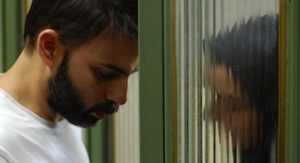 Neither is A Separation.
I'm hesitant to use the word "masterpiece" since I'm not always sure
what it means, or how it makes some sound when using it. But I'm not
hesitant to say that I was blown away by what Asghar Farhadi has
accomplished. In a fest full of stylists of the highest order -- Tarr,
McQueen, Von Trier -- Farhadi's relative invisibility in his own work
was more than refreshing. Describing
Neither is A Separation.
I'm hesitant to use the word "masterpiece" since I'm not always sure
what it means, or how it makes some sound when using it. But I'm not
hesitant to say that I was blown away by what Asghar Farhadi has
accomplished. In a fest full of stylists of the highest order -- Tarr,
McQueen, Von Trier -- Farhadi's relative invisibility in his own work
was more than refreshing. Describing A Separation as a drama, or family drama, in a naturalistic mode makes it sound far more boring than it actually is.
But describing it in generic terms as a "legal thriller" or "courtroom drama" also sells it short: you're fairly far along in the narrative before the main characters appear before the investigating magistrate, a kind of one-man-grand-jury, and things have already been riveting from the get-go. You can easily identify with the plight of several of these characters, and the ingeniously crafted script slowly draws all the believable, everyday details and events of their lives together in a way that catches both them and the audience in its net. I guess the best thing I can say about A Separation is that one can't easily pinpoint why it's so successful -- the acting talent on display, its wonderfully twisty and yet utterly convincingly plot, or Farhadi's direction in service of both. As in any truly great movie, they all go hand in hand.
AK: It's time to touch on the charming, buoyantly old-Hollywood The Artist.
As somewhat of a silent film novice I missed many of the references in
the film, though was taken with the exuberance with which the film
captures Hollywood's transition from silent cinema to the talkies;
Singing in the Rain's silent, less musical brother if you will.
Captivating and reverent, expressively detailed and utterly
transportive, this is the type of film that makes me love the art-form.
One of my favorites of the fest and a film I will be seeing again with
friends upon release.
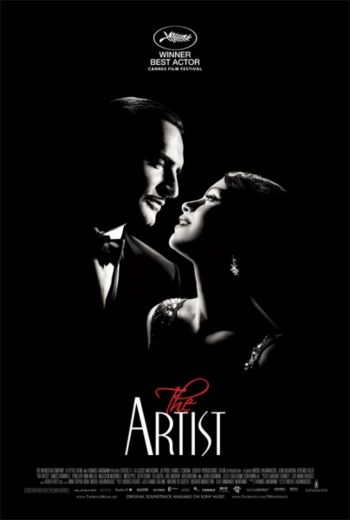 PG: I think The Artist is so much fun that it's apt to turn some people into silent
film buffs. There's not only the exuberance you mention but also such
intelligence and sheer love-of-movies in just about every scene that you
sit there with a stupid grin plastered to your face for the entire film
-- at least I did. Like Corman's World and A Separation,
it's really not to be missed -- and especially on the big screen, in
all its 1.33 glory. You're dead-on when you state how transporting The Artist is, and of course I loved some of the references such as Singin' in the Rain and also Citizen Kane, which director
Michel Hazanavicius cited in a kind of self-mocking way after the
screening. The nice thing about those borrowings or nods, along with
ones to early Joan Crawford films, Astaire and Rogers, and so on, is
that they're lightly
done and, moreover, do not constitute direct "sampling" of film text. I
had a big problem with the actual clips of Douglas Fairbanks in The Mark of Zorro followed by star Jean Dujardin cut
in on the close shots. Why not recreate a Fairbanks-style sequence for a
few seconds using present-day freerunners? I mean, this is a French
production after all, right? Worse, the long climactic sequence is
scored by an uninterrupted chunk of Bernard Herrmann that does not fit
the time period, unlike so much of the great, occasionally Gershwinesque
contributions of composer Ludovic Bource. What pains me is that I love
Hazanavicius' choices -- Vertigo is
one of my two or three favorite films of all time and it boasts the
most gorgeous music for the screen I've heard -- but there's a big
difference between paying homage and
using a crutch. Anyway, I'm griping too much about a film that I
absolutely loved. Not only would I make a point of paying to see it
again in theaters when it opens in a few weeks, but I suspect it's one
of those movies that you can derive joy from just by being there for
others' first experience of it.
PG: I think The Artist is so much fun that it's apt to turn some people into silent
film buffs. There's not only the exuberance you mention but also such
intelligence and sheer love-of-movies in just about every scene that you
sit there with a stupid grin plastered to your face for the entire film
-- at least I did. Like Corman's World and A Separation,
it's really not to be missed -- and especially on the big screen, in
all its 1.33 glory. You're dead-on when you state how transporting The Artist is, and of course I loved some of the references such as Singin' in the Rain and also Citizen Kane, which director
Michel Hazanavicius cited in a kind of self-mocking way after the
screening. The nice thing about those borrowings or nods, along with
ones to early Joan Crawford films, Astaire and Rogers, and so on, is
that they're lightly
done and, moreover, do not constitute direct "sampling" of film text. I
had a big problem with the actual clips of Douglas Fairbanks in The Mark of Zorro followed by star Jean Dujardin cut
in on the close shots. Why not recreate a Fairbanks-style sequence for a
few seconds using present-day freerunners? I mean, this is a French
production after all, right? Worse, the long climactic sequence is
scored by an uninterrupted chunk of Bernard Herrmann that does not fit
the time period, unlike so much of the great, occasionally Gershwinesque
contributions of composer Ludovic Bource. What pains me is that I love
Hazanavicius' choices -- Vertigo is
one of my two or three favorite films of all time and it boasts the
most gorgeous music for the screen I've heard -- but there's a big
difference between paying homage and
using a crutch. Anyway, I'm griping too much about a film that I
absolutely loved. Not only would I make a point of paying to see it
again in theaters when it opens in a few weeks, but I suspect it's one
of those movies that you can derive joy from just by being there for
others' first experience of it.AK: You were not happy with The Descendants when we exited, and I can understand the same-old formula in a lush environment producing that sort of sentiment. But, I am on the complete opposite side of the proverbial fence here. The Descendants certainly doesn't do anything new: the better living through family, brought together by a disaster and better for it model, is well worn ground, though not a fault in my book. As someone who spends his life telling and listening to stories, I've learned it's not always the content of the story, it's how the story is told. The Descendants is one of those stories that gains strength as it moves along, presenting a familiar situation which slowly, disarmingly proves affective through strong acting and the great writing we have come to expect from Alexander Payne.
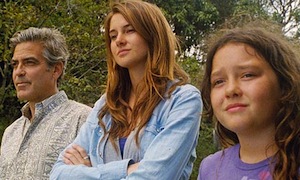 PG: Well, I know we got in an animated conversation after the screening, and I think I can be a bit more charitable with
the passing of time. I like how some of what one expects to be big
dramatic moments actually avoid standard, formulaic payoffs. The
trouble is, the payoffs then need to come somewhere where you don't
expect them, and for me they never do. Instead, the movie gets mired in
its own understated indie-feel, with a surface gloss of iconoclasm and
Clooney charm helping it get by
for long stretches. However, these elements can't really hide the fact
that the deeper currents are exceedingly trite. The air of creative
laziness that sometimes crops up -- a voice-over that's inexplicably
abandoned after establishing key info, visual and narrative
telegraphing, a reliance on "beauty shots" of Hawaii -- doesn't help
matters. More disheartening, the brand of bold awkwardness that works so
well in Alexander Payne's other films (and yes, I did laugh several
times here, too) comes across in The Descendants as
mere schtick, neither insightful nor disarming. Overall, then, I can't
help but feel that Payne, whose work I've always admired, has dumbed
himself down to the point where this will undoubtedly be his most
successful picture.
PG: Well, I know we got in an animated conversation after the screening, and I think I can be a bit more charitable with
the passing of time. I like how some of what one expects to be big
dramatic moments actually avoid standard, formulaic payoffs. The
trouble is, the payoffs then need to come somewhere where you don't
expect them, and for me they never do. Instead, the movie gets mired in
its own understated indie-feel, with a surface gloss of iconoclasm and
Clooney charm helping it get by
for long stretches. However, these elements can't really hide the fact
that the deeper currents are exceedingly trite. The air of creative
laziness that sometimes crops up -- a voice-over that's inexplicably
abandoned after establishing key info, visual and narrative
telegraphing, a reliance on "beauty shots" of Hawaii -- doesn't help
matters. More disheartening, the brand of bold awkwardness that works so
well in Alexander Payne's other films (and yes, I did laugh several
times here, too) comes across in The Descendants as
mere schtick, neither insightful nor disarming. Overall, then, I can't
help but feel that Payne, whose work I've always admired, has dumbed
himself down to the point where this will undoubtedly be his most
successful picture.AK: It's a film that is overwhelmingly blunt in its thematics: parenthood, natural preservation, infidelity. That works within these universal confines, teaching us that if you are true to yourself everything will be OK, as long as you're not a prick. It's a film where not everyone wins, where life deals you a shitty hand and you need to figure out how to deal with it, then maybe things will start getting better. It's a film about the power of communication, growing up and moving on. It's a film with all of those fluffy morals that is unconcerned with anything loftier, just finding a way to improve things through family and a little bit of humor.
Across the board, from the smaller roles of
Beau Bridges, Matthew Lillard and Robert Forster to the front and center
work of relatively unknown Shailene Woodley the acting is the
star. Archetypal or not, these are characters I'll remember, and feel a
kinship with; and thinking back this is true of most of Payne's
characters. There is a life within them, a want for something better,
that moment of catharsis where you feel good about yourself as a person,
that striving I see in all of Payne's central rolls. You harp on the
quirk a bit, but without that humor, that lightness of conversation, in
which anyone can say something dumb if it will teach them a lesson or
lighten the mood, we wouldn't have as much character progression. People learning from their mistakes while providing the film a
bit of spontaneity not allowing it to be weighed down by the death that gravitates the
film. There are certainly a few times where the histrionics burn
through, but in-general the film skips the heavy-handedness and lets the
actors do their thing, something I warmly welcome.
PG: Well, all in all, an amazing festival -- and that's without my catching so many of the "Nikkatsu" pictures or classics such as The Exterminating Angel, another personal favorite. Instead of simply feeling like the green room for would-be Oscar contenders, or just a collection of Cannes or Toronto leftovers, NYFF really seemed like an incredible, and incredibly generous, "festival" in the true sense: a tremendous amount of fun, and an experience it's hard not to feel inspired by if you love the art form in all its myriad shapes and sizes.
PG: Well, all in all, an amazing festival -- and that's without my catching so many of the "Nikkatsu" pictures or classics such as The Exterminating Angel, another personal favorite. Instead of simply feeling like the green room for would-be Oscar contenders, or just a collection of Cannes or Toronto leftovers, NYFF really seemed like an incredible, and incredibly generous, "festival" in the true sense: a tremendous amount of fun, and an experience it's hard not to feel inspired by if you love the art form in all its myriad shapes and sizes.

Do you feel this content is inappropriate or infringes upon your rights? Click here to report it, or see our DMCA policy.






